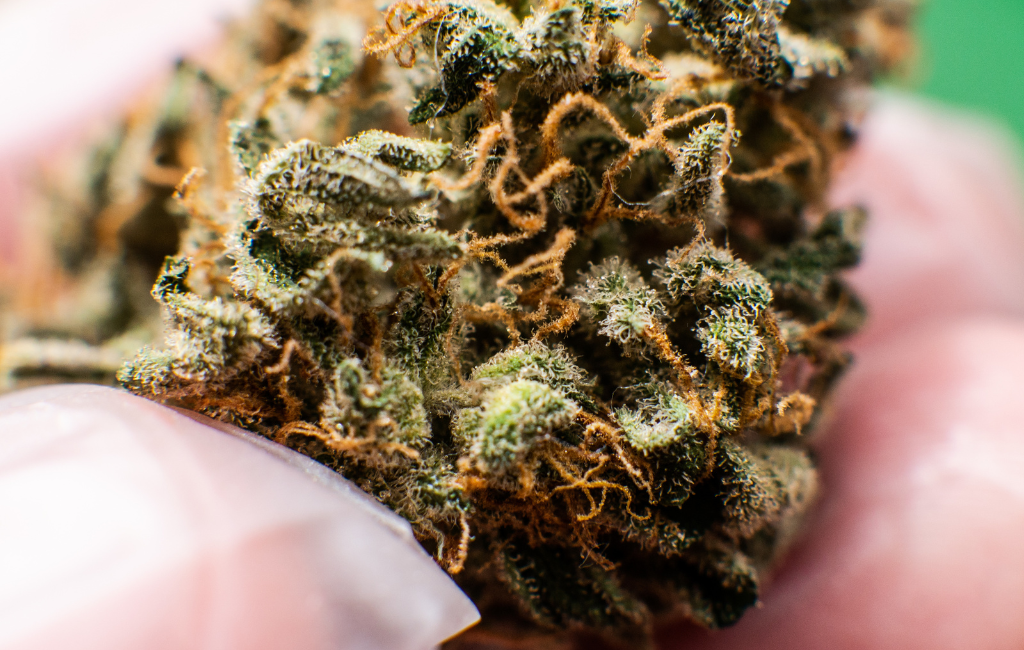Pure Remedy with THCa Flower
In recent years, the exploration of cannabis and its derivatives has gained significant momentum. Among the various compounds found in cannabis, THCa (tetrahydrocannabinolic acid) has emerged as a subject of interest for its potential therapeutic benefits. Unlike THC, THCa is non-psychoactive, making it an appealing option for those seeking relief without the high. This article delves into the potential of THCa flower as a pure remedy, examining its benefits, applications, and the science behind it.
Understanding THCa: The Basics
THCa is a naturally occurring compound in raw and live cannabis plants. It is the precursor to THC, the compound responsible for the psychoactive effects of cannabis. When cannabis is heated through smoking, vaping, or cooking, THCa undergoes decarboxylation, converting into THC. This transformation is what gives cannabis its psychoactive properties.
In its raw form, THCa does not produce a high, making it an attractive option for those who wish to experience the therapeutic benefits of cannabis without the psychoactive effects. Research suggests that THCa may have anti-inflammatory, neuroprotective, and anti-emetic properties, among others.
Potential Benefits of THCa
- Anti-inflammatory Properties: Studies indicate that THCa may help reduce inflammation, which could be beneficial for conditions such as arthritis and other inflammatory diseases.
- Neuroprotective Effects: Preliminary research suggests that THCa may offer neuroprotective benefits, potentially aiding in the treatment of neurodegenerative diseases like Alzheimer’s and Parkinson’s.
- Anti-emetic Benefits: THCa has shown promise in reducing nausea and vomiting, making it a potential option for patients undergoing chemotherapy or those with chronic nausea.
Applications of THCa Flower
THCa flower can be consumed in various ways to harness its potential benefits. Here are some common methods:
- Juicing: Fresh cannabis leaves and flowers can be juiced to create a nutrient-rich beverage. This method preserves the THCa content, allowing users to benefit from its properties without psychoactive effects.
- Topicals: THCa-infused creams and balms can be applied directly to the skin, providing localized relief for pain and inflammation.
- Tinctures: THCa tinctures offer a convenient way to consume the compound. They can be taken sublingually or added to food and beverages.
Case Studies and Research
Several studies and anecdotal reports highlight the potential of THCa as a therapeutic agent. For instance, a study published in the British Journal of Pharmacology found that THCa exhibited anti-inflammatory properties in animal models. Another study in the Journal of Neuroimmune Pharmacology suggested that THCa might have neuroprotective effects, offering hope for patients with neurodegenerative conditions.
Anecdotal evidence from patients and healthcare providers further supports the potential benefits of THCa. Many individuals report experiencing relief from symptoms such as pain, inflammation, and nausea after incorporating THCa into their wellness routines.
The Science Behind THCa
The therapeutic potential of THCa lies in its interaction with the body’s endocannabinoid system (ECS). The ECS plays a crucial role in regulating various physiological processes, including pain, mood, appetite, and immune response. THCa is believed to interact with the ECS by influencing cannabinoid receptors, which may explain its potential benefits.
Research into the specific mechanisms of THCa is still in its early stages, but the existing studies provide a promising foundation for future exploration. As scientists continue to investigate the compound, a clearer understanding of its effects and applications is expected to emerge.
Legal Considerations
The legal status of THCa varies by region, as it is often classified alongside THC. In areas where cannabis is legal for medical or recreational use, THCa products are generally available. However, in regions with stricter cannabis laws, access to THCa may be limited. It is important for consumers to be aware of the regulations in their area before purchasing or using THCa products.
Conclusion
THCa flower presents a promising avenue for those seeking natural remedies without the psychoactive effects associated with THC. With potential benefits ranging from anti-inflammatory and neuroprotective properties to anti-emetic effects, THCa offers a versatile option for various health concerns. As research continues to unfold, the understanding of THCa’s therapeutic potential is likely to expand, paving the way for new applications and insights into this intriguing compound.
For individuals interested in exploring THCa as a remedy, it is advisable to consult with healthcare professionals and stay informed about the latest research and legal developments. By doing so, they can make informed decisions about incorporating THCa into their wellness routines.
